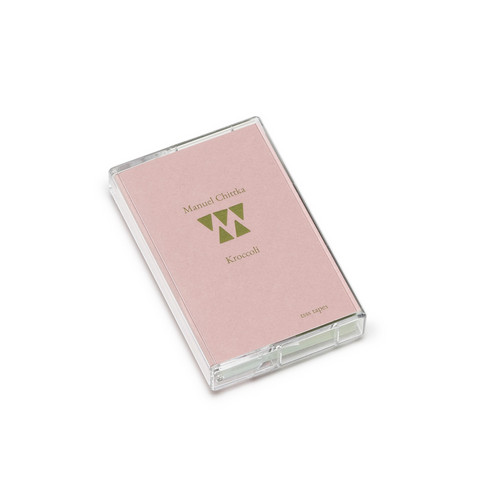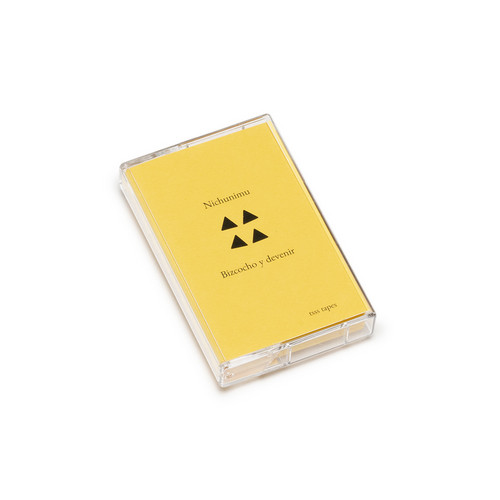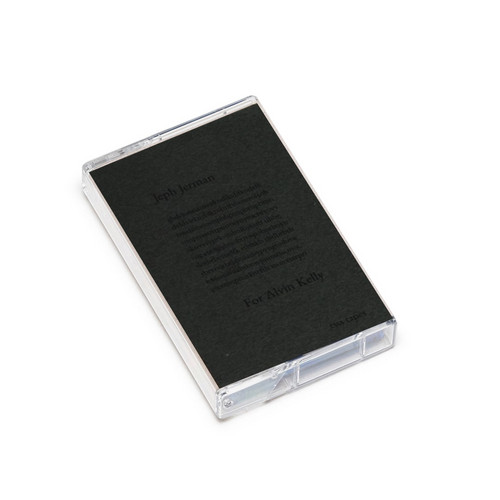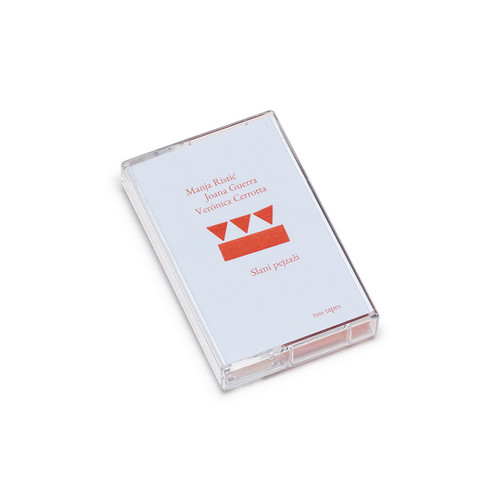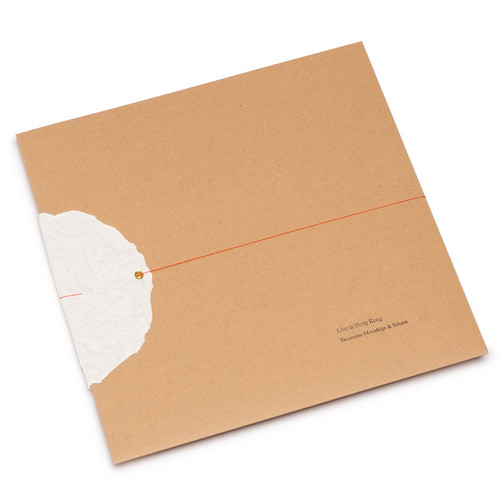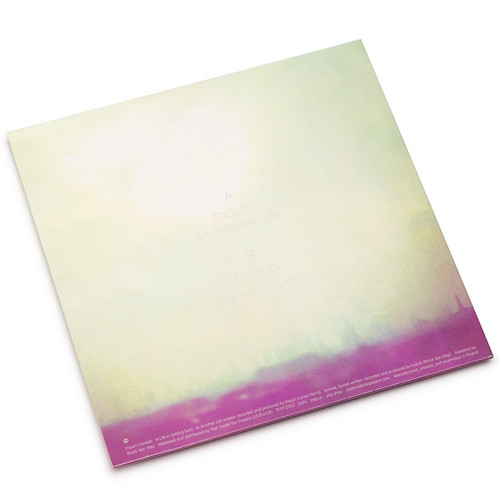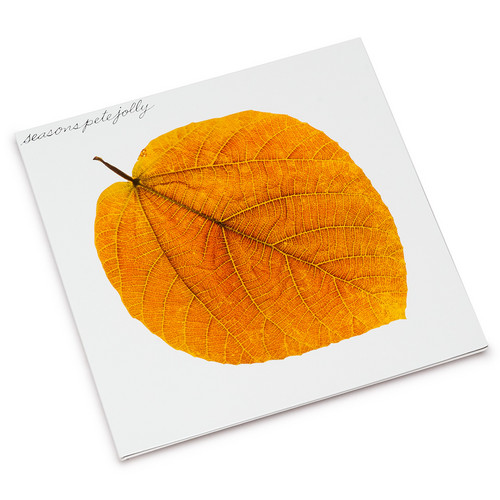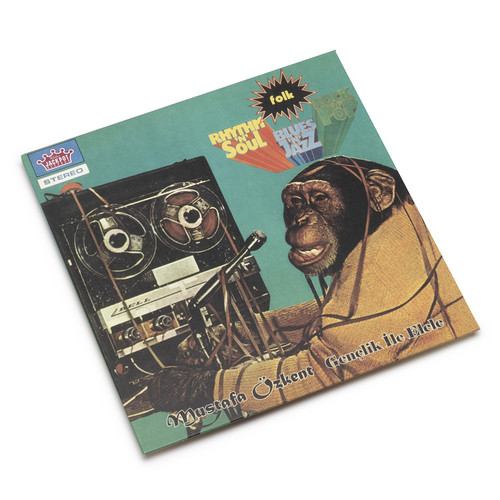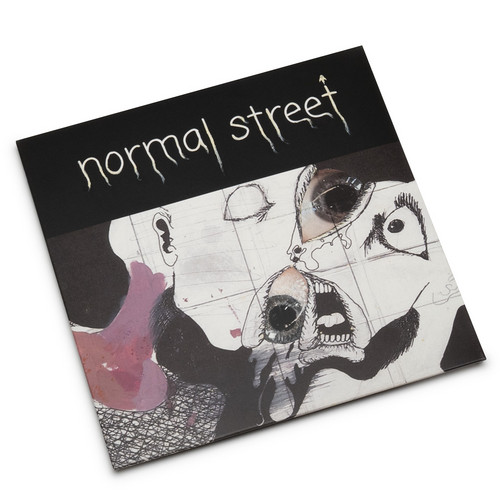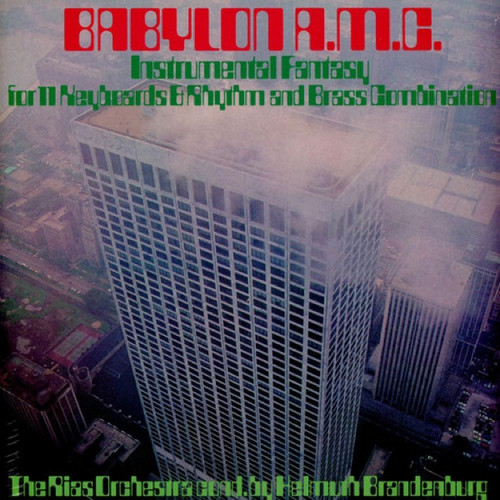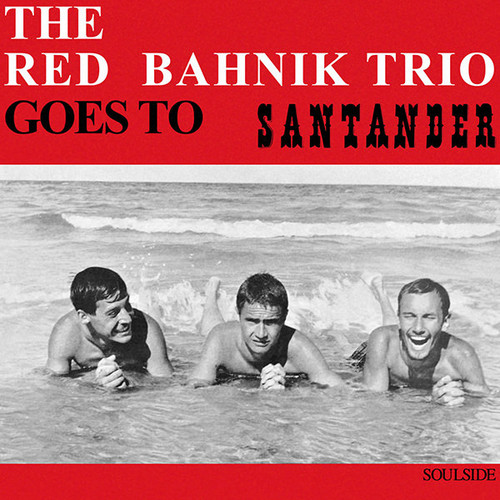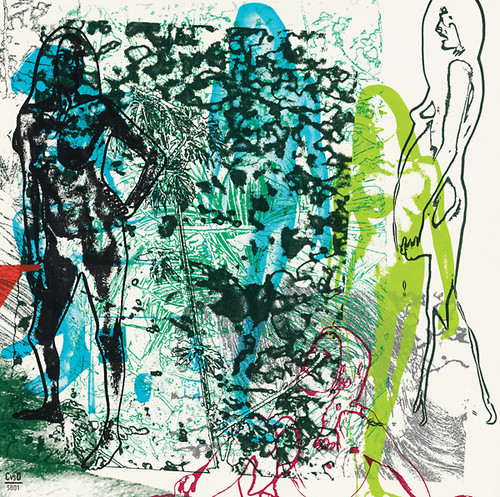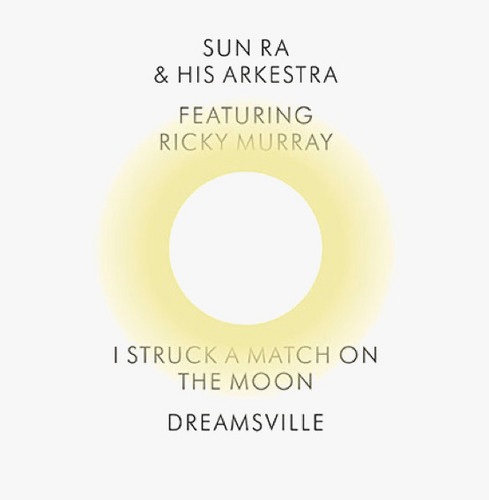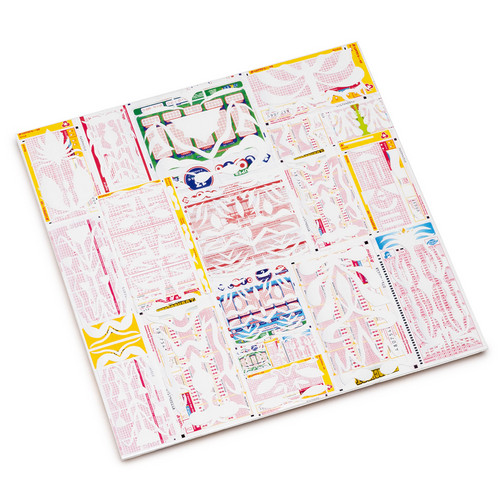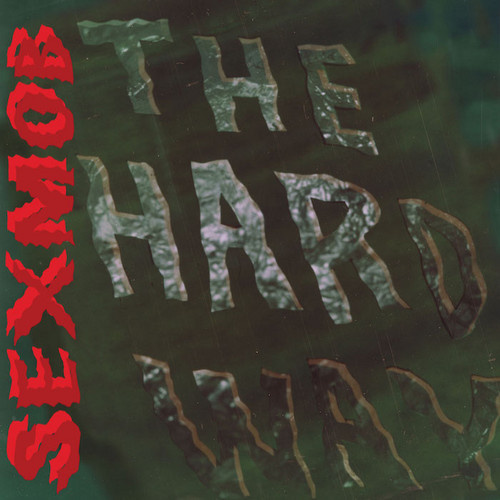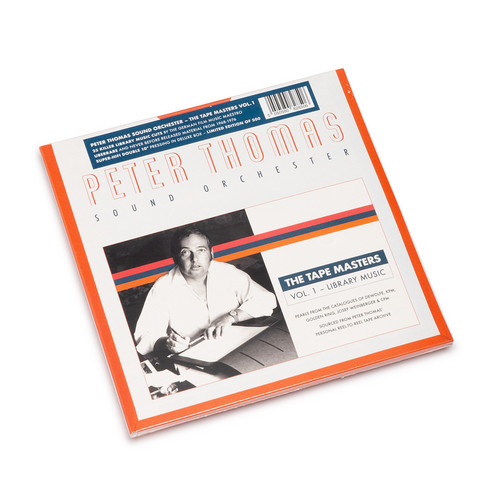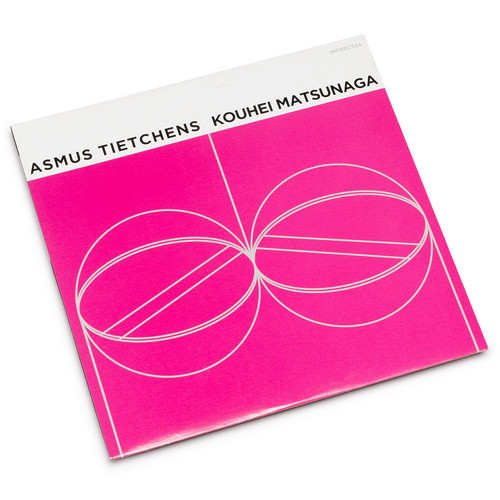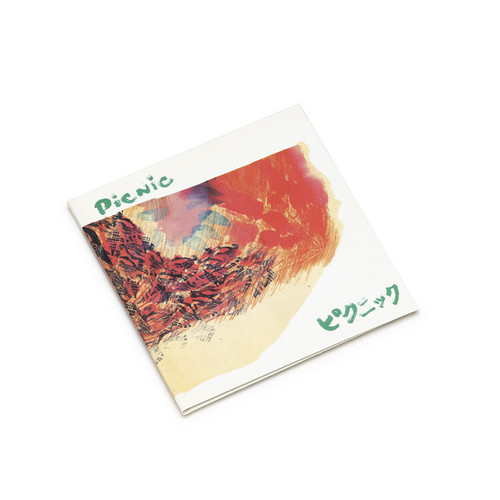Back in stock
Kroccoli
*100 copies limited edition.* Tsss Tapes presents Kroccoli by Manuel Chittka on percussions and electronics. 'Kroccoli is one of the first mutual words of my twin sons Cosmo & Charlie'.
Bizcocho y devenir
*100 copies limited edition.* Tsss Tapes presents Bizcocho y devenir by Nichunimu.
Benjamín Vergara: trumpetNicolás Carrasco: synthetizer, radioMatías Mardones: percussion
Dian Qi Xia
*100 copies limited edition.* Tsss Tapes presents dian qi xia by Taiwanese improvisor Liu Fangyi.
For Alvin Kelly
*120 copies limited edition* Tsss Tapes presents For Alvin Kelly by Jeph Jerman.
Segnali
*100 copies limited edition* Tsss Tapes presents Segnali by Euro Herc. Euro Herc, are Chemiefaserwerk and Turmeric Acid, Respectively owners of Falt Records e Czaszka recs/Molt Fluid.
Slani pejzaži
*100 copies limited edition* Tsss Tapes presents Slani pejzaži by the trio formed by Manja Ristic (Serbia), Joana Guerra (Portugal) and Verónica Cerrotta (Argentina).
Live In Hong Kong
**LP-sized sleeve stuck with washi and yarn. Limited to 50 copies** This live show was organized by The Empty Gallery in Hong Kong. The owner and director listened a CD Music for Piano by cello improviser Yasumune Morishige and musician Atsushi Reizen released by Omega Point, and they decided to hold a live show on retrospective exhibition of experimental filmmaker Toshio Matsumoto. On this live show, two grand pianos provided through the good offices of the owner. This is the best situation for…
A Life In Setting Suns
** 180g opaque blue/pink vinyl record. Edition of 200. ** That liminal moment, when the phosphorescence behind the window shade first disrupts your eyelids, is a difficult one to pinpoint. Sometimes the earliest thought in your mind is a long-tail partial memory of those last few moments of a thousand-yard dream, sometimes it’s an irrepressible descending sigh as you anticipate what’s to follow, whether with apprehension or ardor. Centuries have passed in your unconscious absence; every frequenc…
Seasons
Organic, electric, freeform. Pete Jolly's Seasons is comprised of melodies and textures composed live and without pretense—its grooves contain a complete and divine listening experience that surpasses all others of the era in which it was originally released, coming as close to transcendent musical meditation incarnate as one could possibly imagine. Seasons is an unsung masterpiece of ensemble groove and stellar musicianship, equally unsurpassed and inspired in its quiet excellence.
Genclik Ile Elele
2019 small reppress. Originally released in Turkey 1973, Mustafa Özkent's masterpiece (creation) of an all instrumental Turkish Psychedelic Funk album, filled with classic beats and breaks still inspires long time fans and first time listeners. The funky rhythms, hypnotic percussions, and heavy break beats makes this a holy grail amongst DJ's and music fans alike. Only a handful of copies from the original pressing are known to still exist making this reissue a welcome addition to any record col…
Normal Street
Normal Street is another salvo in ESP-Disk's drive to revive weird rock! Writer/musician/film maker Chris Shields says: "Near the DIY venue, cooperative, and punk/freak haven, The Firehouse, in Worcester, Mass, there's a street ironically named 'Normal St.' I was lucky enough to be playing a gig with Painted Faces there a few years back. Driving up the steep, labyrinthine roads we spotted the green sign, had a laugh owing to some solid riffing by all present, and then, moved on. The gig was good…
Babylon A.M.C.
"Babylon A.M.C." Subtitle: “Instrumental Fantasy For 11 Keyboards & Rhythm and Brass Combination” is a highly sought-after library album by composer and pianist Helmuth Brandenburg - a progressive fusion composition of ten individual tracks, produced in 1978 with musicians of the Berlin RIAS Orchestra. These tracks move unconventionally between genres such as cosmic funk, fusion jazz, electronica, world music and touches of a Giallo soundtrack. First reproduction of the German LP on the label In…
Goes To Santander
First reissue of a great piano trio album, originally released in 1963 on the private 'Soulside' label from Zurich/ Switzerland with only a handful of copies known to exist. First and last recordings of unknown jazz pianist Red Bahnik, with John Treichler on bass and a young Mani Neumeier on drums, including unique versions of Les Mc Cann`s 'Vacushna' and 'Fish This Week', Horace Silver`s 'Sister Sadie', plus original material like the oriental-tinged 'Fata Morgana Altamira' or the Latin tune 'S…
Cosmic Love
Joe McPhee on seven inches of pure loving vinyl. Features two versions of the 1970 classic "Cosmic Love". McPhee rocking the cosmic wavelength on space organ and tenor sax. Recorded in Poughkeepsie, NY, 1970; Produced by John Corbett; Vinyl project coordinated by Marc Bonadies. Cover artwork by Dick Higgins. 33 1/3 rpm.
I Struck a Match on the Moon / Dreamsville
In 1961 Sun Ra took off from Chicago – where he had established the Arkestra, his dedicated ensemble and the vehicle for his mission to better the planet – and with a scaled-down version of the band he landed in NewYork. Their first recording session was in Newark in October of that year. The Futuristic Sounds of Sun Ra, recorded for the Savoy label, is a beautiful document of the material they'd honed during a long residency at the Wonder Inn at the end of the Chicago period. Among tracks left …
Tomutonttu Ja Lehtisalo
Finland has long had a uniquely progressive underground, with thriving punk, avant, jazz, and rock scenes with oversized output and impact. Jussi Lehtisalo’s (Circle, Pharaoh Overlord, Mahti, etc) label Ektro has been at the center of this activity for the last 3 decades, with a stream of excellent and conceptually bonkers releases covering music of all types. Here Jussi joins up with Jan Anderzén (of Kemialliset Ystävät among others) for an LP of absolutely fun and unusual miniature duets that …
The Hard Way
Sexmob breaks new sonic ground with longtime producer scotty hard on the hard way, a new and extraordinary collaboration
The Tape Masters Vol. 1 - Library Music
Stunning! 25 killer library music cuts by the German film music maestro on audiophile pressing in deluxe 2x10" set. Uberrare and never released before material from 1968-1976, sourced from Peter Thomas' personal reel-to-reel tape archive. Limited edition of 500 pieces. From brassy big band funk, space jazz, krauty synth experiments to proto-hiphop, cosmic schlagers, heavy easy listening, soulful soundtrack moods and absurdly dreamy LSD ballads, this compilation encompasses the composer's most ob…
Split LP
Limited edition split album from two of Earth’s avant-garde super powers: Asmus Tietchens and Kouhei Matsunaga. Last summer Important released some highly praised records with Kouhei Matsunaga including a collaborative CD with Sean Booth (Autechre) and Mika Vainio (Pan Sonic), a split LP with Mika Vainio and a full length CD of his own solo work. The breath and quality of Kouhei's work was apparent across these three releases and his compositions for this split LP serve to create connections be…
Picnic
2016 release. The first reissue of Picnic, originally released on Data Records in 1985. A little-known gem of Dutch free music, Picnic is the brainchild of cellist Tristan Honsinger, who composed all but one of its 12 compositions. Brilliant and whimsical, the tracks bring to mind Honsinger's work with ICP Orchestra, for whom he has also composed extensively. Here he's working in an incredible ensemble, with trumpeter Toshinori Kondo, saxophonist Sean Bergen, Jean Jacques Avenel on bass, Michael…
